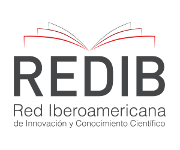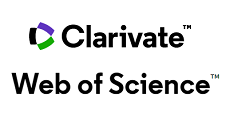Adaptive Learning in the Tragedy of the Commons
Aprendizaje adaptativo en la tragedia de los comunes
DOI:
https://doi.org/10.15446/ing.investig.v23n3.14706Keywords:
genetic programming, tragedy of the commons, game theory (en)programación genética, tragedia de los comunes, teoría de juegos (es)
Downloads
The joint utilization of a commonly owned resource often causes the resource to be overused, this is known as The tragedy of the Commons. This paper analyses the effects of adaptive learning in such kind of situations using genetic programming. In a game theoretical approach, the situation considers not only the strategic interaction among players, but also the dynamics of a changing environment linked strongly to the players, actions and payoffs. The results of an analytical game are used to formulate a simulation game for the commons, then a series of computational experiments are conducted, obtaining evolved game Strategies that are examined in comparison with those predicted by the analytical model. The obtained results are similar to those predicted by classic game theory, but not always leading to a tragedy.
La utilización conjunta de un recurso común, generalmente causa su extinción. Esto se conoce como la tragedia de los comunes. En este trabajo se analizan los efectos del aprendizaje adaptativo, usando programación genética, en esta clase de situaciones. En el marco de la teoría de juegos, aquí se consideró la interacción estratégica entre los jugadores y la dinámica de un ambiente vinculado fuertemente al juego. Se formuló un modelo de simulación para la situación de los comunes, con base en los resultados de un juego analítico. Posteriormente, se realizó una serie de experimentos computacionales para obtener reglas de juego evolucionadas, las cuales fueron analizadas en relación con los resultados predichos por el modelo analítico. Los resultados obtenidos fueron similares a aquellos predichos por la teoría de juegos básica, pero no siempre condujeron a una tragedia.
References
Hardin, G. (1968). The tragedy of the commons, Science, vol. 162, pp. 1243-48, DOI: https://doi.org/10.1126/science.162.3859.1243
Schelling, T.C. (1978). Micromotives and Macrobehavior. W.W Norton and Co.
Aliprantis, C.D, (2000), Games and Decision Making. Oxford University Press.
Yao, X. (1997). Automatic acquisition of strategies by co-evolutionary learning. Blumenstein [153], pages 23-29.
Fogel, D.B. (1995). Evolutionary Computation: toward a new philosophy of machine learning. New York, NY: IEEE Press.
Darwen, P.J., and Yao, X. (2001). Why more choices cause less cooperation in iterated prisoner's dilemma. In Proceedings of the 2001 Congress on Evolutionary Computation CEC2001 (COEX, World Trade Center, 159 Samseong-dong, Gangnam-gu, Seoul, Korea), pp. 987-994, IEEE Press, 27-30. DOI: https://doi.org/10.1109/CEC.2001.934298
Yao, X., and Darwen, P.J. (1994). An experimental study of person iterated prisoner's dilemma games. In Evo Horkshops, pp. 90-108. DOI: https://doi.org/10.1007/3-540-60154-6_50
Deadman, S.E.; Peter, J., and Randy, G. (2000), Simulating common pool resource management experiments with adaptive agents employing alternate communication routines. Journal of Artificial Societies and Social Simulation, vol, 3, no. 2.
Levhari, D., and Mirman, L. (1980). The great fish war: An example using a dynamic Cournot-Nash solution, 7he Bel Journal of Economics, vol, 11, no. 1, pp, 322-34. DOI: https://doi.org/10.2307/3003416
Dutta, PK. (1999). Strategies and Games: Theory and Practice, MIT Press.
Koza, LR. (1992). Genetic programming: On the programming of computers by natural selection. Cambridge, Mass.: MIT Press.
Chen, S.H. (2001). Fundamental issues in the use of genetic programming in agent-based computational economics. Morking Paper, Al-Econ Research Center National Chengchi University Taipei, Taiwan,
Perkis, T. (1994). Stack-based genetic programming. In Proceedings of the 1994 IEEE World Congress on Computational Intelligence, vol. 1, (Orlando, Florida, USA), pp. 148-153, IEEE Press, 27-29, DOI: https://doi.org/10.1109/ICEC.1994.350025
Fogel, D.; Back, 1; Michalewicz, Z. (Eds.) (1997). Handbook of Evolutionary Computation. IOP Publishing Ltd and Oxford University Press. DOI: https://doi.org/10.1201/9781420050387
Riechmann, T, (2001). Genetic algorithm learning and evolutionary games. Journal of Economic Dynamics and Control no, 25, pp. 1019-1037, DOI: https://doi.org/10.1016/S0165-1889(00)00066-X
Kreyszig, E. (1978), Introductory Functional Analysis with Applications, New York, NY, USA: John Wiley & Sons.
How to Cite
APA
ACM
ACS
ABNT
Chicago
Harvard
IEEE
MLA
Turabian
Vancouver
Download Citation
License
Copyright (c) 2003 Julian Andrés García, Luis Fernando Niño V

This work is licensed under a Creative Commons Attribution 4.0 International License.
The authors or holders of the copyright for each article hereby confer exclusive, limited and free authorization on the Universidad Nacional de Colombia's journal Ingeniería e Investigación concerning the aforementioned article which, once it has been evaluated and approved, will be submitted for publication, in line with the following items:
1. The version which has been corrected according to the evaluators' suggestions will be remitted and it will be made clear whether the aforementioned article is an unedited document regarding which the rights to be authorized are held and total responsibility will be assumed by the authors for the content of the work being submitted to Ingeniería e Investigación, the Universidad Nacional de Colombia and third-parties;
2. The authorization conferred on the journal will come into force from the date on which it is included in the respective volume and issue of Ingeniería e Investigación in the Open Journal Systems and on the journal's main page (https://revistas.unal.edu.co/index.php/ingeinv), as well as in different databases and indices in which the publication is indexed;
3. The authors authorize the Universidad Nacional de Colombia's journal Ingeniería e Investigación to publish the document in whatever required format (printed, digital, electronic or whatsoever known or yet to be discovered form) and authorize Ingeniería e Investigación to include the work in any indices and/or search engines deemed necessary for promoting its diffusion;
4. The authors accept that such authorization is given free of charge and they, therefore, waive any right to receive remuneration from the publication, distribution, public communication and any use whatsoever referred to in the terms of this authorization.



























